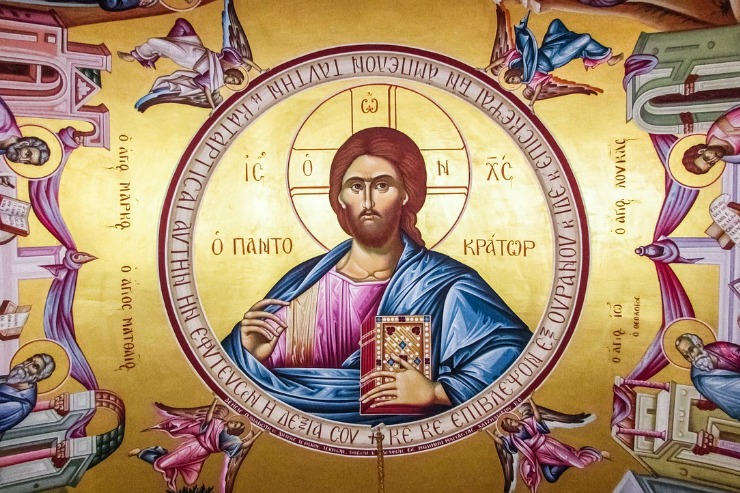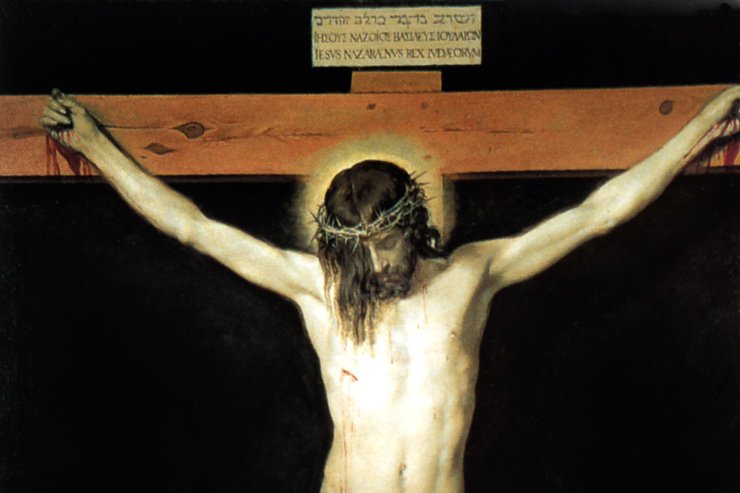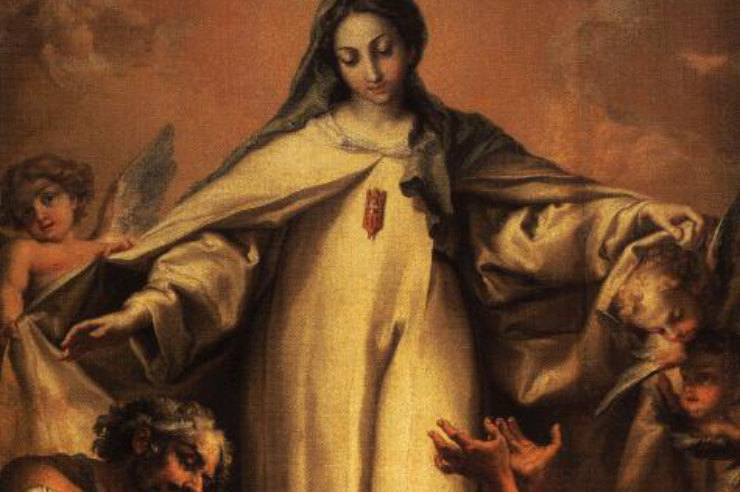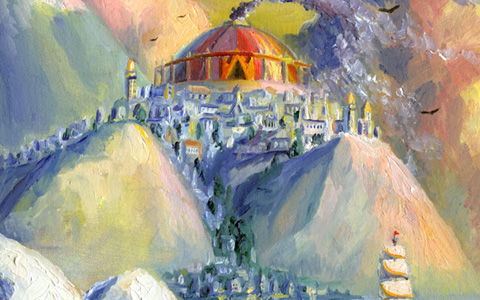Today is the feast of Pope St. Martin I, the last Pope to be venerated as a martyr in the Catholic Church. If you don’t know the story of Pope Martin I, you’re probably not alone. And if you’re assuming right now that he was killed during a persecution by a pagan Roman emperor or by invading barbarians, you’re probably not alone either… but you’re wrong.
Tragically, Pope Martin died not at the hands of pagans, but at the hands of Emperor Constans II, the Byzantine emperor. The last Pope venerated as a martyr died not at the hands of pagans, but because of a dispute within the Church.
Martin I, the only Pope during the Byzantine period to be elected without the consent of the emperor, was a staunch opponent of Monotheletism, the belief that Christ has two natures but only one will. Almost immediately after his consecration, he called the Lateran Council of 649, where the belief was condemned. (The calling of this synod without the agreement of the emperor was itself revolutionary.)
Emperor Constans II responded by imprisoning Martin and Maximus the Confessor, one of the last Fathers of the Church. Both men eventually died due to the torture and extreme sufferings during their years of exile. Maximus’ tongue was cut out so he could no longer preach and his right hand was cut off so he could no longer write.
Pope Martin I, already ill at the time of his arrest, was kept in confinement in a freezing cold cell, where he was not allowed to bathe and was given very little food. He was then exiled to the Crimean peninsula, where he eventually died, forgotten even by members of his own flock.
Both men were vindicated by the Third Council of Constantinople (680-681), which declared that Christ possessed both a human and a divine will.
If you have never heard of the heresy of Monotheletism, or you don’t know how to wrap your mind around the natures and wills of Christ, you’re not alone. And yet we celebrate the heroism of these men, who were willing to give everything in witness and defense of the truth.
The martyrdom of Pope Martin I might shock us. After all, we live in a culture that thrives on squishiness, vagueness, and even confusion. Our tolerant culture would balk at clarity of definition being a matter of life and death. Martin I was willing to die for a theological nuance. Monotheletism might seem like theological mumbojumbo to you. You might be tempted to think, “does it really matter?” Why were men willing to die for theological nuances?
Because who Jesus Christ is matters. If Christ had one will, not two, he had an incomplete human nature. Jesus Christ was fully human and fully divine. His humanity was not simply an instrument of His divinity, some sort of puppet to be used by His divinity. Rather, he had a free human will. His actions were free human actions, meritorious actions, saving actions. His death on the cross was not the death of a human puppet at the hands of a divine instigator. Yes, his human will was completely in union with his divine will – they had the same object. But to deny he had a human will ultimately leads to a denial of his full human nature.
Yes, perhaps this is content of theology classrooms and not the average Catholic church pulpit. But we must always remember that our words matter, that our theology matters, that our beliefs ultimately matter. Men and women throughout history have died for accurate expressions of the truth. Every time we pray the Creed, we should say it with immense gratitude for the heroes of our Church – saints like Athanasius, Irenaeus, Cyril of Alexandria, Maximus the Confessor, and Pope Martin.
Pope Martin I died believing he had been forgotten by his flock. But he stayed true to the faith of the Church, despite the ease of giving into the secular ruler who held his life in his hands. You have not been forgotten, Pope Martin. To this day, we celebrate your feast day. And we thank God for your courage and clarity to witness to the truth.
















